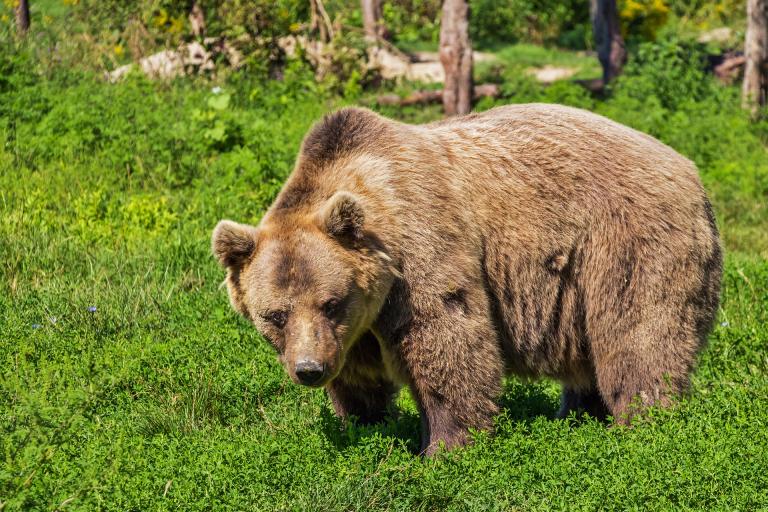A lot of people seem to be confused about why it isn’t appropriate to ask victims of sexual assault about their behaviour leading up to the assault. And why is it unacceptable to advise women of reasonable precautions that they could take to avoid rape? I mean, if women’s are making choices that place them in danger, isn’t the truly compassionate thing to explain those dangers?
There is actually nothing wrong with giving women sound advice on how to stay safe. Women should be aware, for example, that alcohol is involved in a very high percentage of sexual assaults. They should know that they are more likely to be raped on a date than in a back alley. And there’s nothing wrong with suggesting that women going into potentially risky situations should have a safety plan, just in case.
But how do you differentiate between that kind of helpful information, and victim-blaming? Here’s a quick guide. With bears.
Situation 1. Joe is about to go into a forest. You are familiar with this forest and know it to be inhabited by bears. You have researched the causes of bear attacks, and you have successfully repelled bear attacks yourself. You share your experiences with Joe.
*Not victim blaming*
Situation 2. Joe is going into a bear-infested forest. You pass along some old wives tales and folk wisdom that you have heard about repelling bear attacks. Later you hear that he has been attacked by a bear, and you think “Huh. Guess he didn’t listen.”
*Victim-blaming*
Situation 3. Joe is heading into bear country. You don’t know much about dealing with bears, so you ask around and see what the people who do have experience are saying, and you pass it along. “This is what I’ve heard. I don’t know if it’s true. Hope you have fun and stay safe.”
*Not victim-blaming*
Situation 4. Joe has just had his face eaten by a bear. He is lying in a hospital bed. You choose this moment to explain to him your pet theories about how to prevent bear attacks.
*Victim-blaming*
Situation 5. You are a park ranger. You work with bears on a regular basis, and you have a deep understanding of their behaviour. You post a sign advising travelers on the best, evidence-tested ways to protect themselves against bears.
*Not victim-blaming*
Situation 6. You hear that some kid named Joe got his face eaten by a bear while he was hiking up in the Muskokas. Well, I mean, you go into bear country, what do you expect? Now if it’d been you, you’d have a gun. You’d have shot that bear, dead. It wouldn’t have got anywhere near your face. I mean, obviously you’ve never had to deal with bears around where you live, but you’re sure if one did come by you’d handle it.
*Victim-blaming with a side-order of grandiose delusion*
Situation 7. You hear that Joe is going hiking in an area where recently there were some bear attacks. Joe is a little apprehensive, but he’s been really looking forward to this trip and he doesn’t want to cancel it. You offer to go along. You know, safety in numbers. Joe says, thanks, but mostly what he’s looking forward to is the solitude. You understand, and ask if he would find it helpful for you text him in the evenings, just to check in and make sure he’s safe.
*Not victim-blaming*
Situation 8. You are a bear. You didn’t eat Joe’s face, that was this other bear. But you’re pretty sure Joe must have done something to provoke it.
*I think you all can figure this one out for yourselves.*
(Please note that in this analogy, bears are not men per se – only men who commit sexual assault. This matters for two reasons. First, because it’s important to realize that having a thorough knowledge of your own, male psychology does not give you a firm understanding of the psychology of rapists. Men who feel entitled to use other people’s bodies without their consent are not thinking about this the same way that you’re thinking when you’re struggling not to stare at exposed side-boob. Secondly, because it would be insulting and inaccurate to compare the majority of men to wild animals.)
(Further note: I’m sure there are bear enthusiasts out there who will explain that bears are very gentle creatures and that they will never attack unless they are provoked. I invite you to watch Werner Hertzog’s fascinating documentary “Grizzly Man.”)
Image courtesy of Pixabay
Stay in touch! Like Catholic Authenticity on Facebook:












